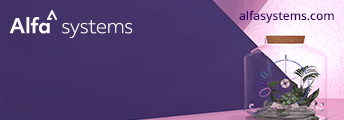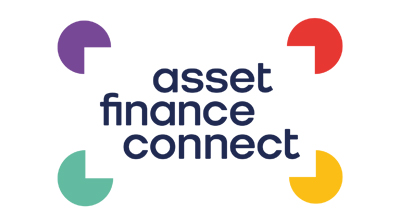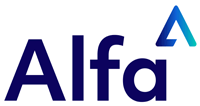The plenary session began with a welcome from new Leaseurope Director General Leon Dhaene. Next, Athens-based brand strategist Peter Economides referred to the famous quote from Greek philosopher Heraclitus of Ephesus’s: ‘Everything changes and nothing stands still’. This, he suggested, underlined a need for relentless innovation enabled by a powerful connection to customers.
Economides was followed by Vassilis Karamanis, the foreign exchange and rates strategist for Bloomberg News, who is also based in Athens. Karamanis warned of the long-term uncertainty in the markets from a potentially drawn-out Brexit, coupled with future elections in Germany, France and the US, amongst many other factors. He avoided making any predictions, but suggested a need to respect the FX markets and how currency prices were changing (by the close of Convention, the pound had reached $1.24). “Never bend charts to your views, bend your views to the charts”, Karamanis suggested.
In response, a representative from the UK’s Finance and Leasing Association noted that the UK leasing statistics were strong and companies were still investing. He called on delegates not to panic and to remain confident about the economic outlook.
Changing markets
From the philosophy of the opening plenary, it was into the practicality of the leasing market in Europe. Session chair Peter-Jan Bentein of the Dutch Leasing Association reviewed the state of the market and its prospects with four industry CEOs: Pierre-Louis Colin of Fraikin Group; Carmen Ene of 3 Step IT; Juergen Mossakowski of CHG-Meridian; and Bill Stephenson of DLL, who is also current chair of the US Equipment Finance and Leasing Association.
Echoing the previous year’s Convention, panel members described how businesses increasingly want to buy solutions that use assets and are becoming less interested in owning the assets. As a result, they are taking a fresh look at how to assess risk.
One panellist spoke of a “transformative change” away from assessing risk based on the security of the asset. In its place, a “new generation” of underwriters will look at the security that comes from providing an asset that is part of an essential service for the customer. Others described how their companies were delivering software, technology and fleet management services, all using assets but going far beyond traditional leasing models and involving the management of a wider range of risks.
A UK delegate raised the question of whether this panel was a representative sample of lessors. He queried whether banks would ever take on the sort of risks that panel members had described. Another questioned how it could be possible to price for risk on an investment made up of 20% hardware and 80% soft assets.
New business models
The second day of Convention featured up to four concurrent sessions. Continuing the debate on future business models, one panel chaired by Patrick Beselaere, global head of ING Lease, reviewed in more detail how leasing companies are changing their business models.
Charlotte Dennery, CEO of BNP Paribas Leasing Solutions, described changes to the market including the shift away from financing “traditional” assets, the growth of new non-regulated competitors, and the risk of ‘Uberization’. She outlined how her company had taken an Uber approach and in workshops had encouraged staff teams to “hack” the leasing value chain to identify and then address weaknesses in it.
Frederic Le Vedier, CEO of new lessor Solfiz, suggested the leasing industry is not keeping pace with customers’ expectations regarding both technology and customer support. Frits Engalaer, vice president of “servitization” for DLL, described how his business was delivering asset “flexibility” to customers in partnership with external service providers. Engalaer argued that rental companies are already good at this, while lessors need to develop the skills.
Lease accounting standard
At a session on the new lease accounting standard, IFRS 16, Mark Venus, chair of Leaseurope’s accounting and tax committee, described some of the complexities involved in implementing the new standard, particularly for today’s operating leases where the expense would shift from being an overhead to an item of capital expenditure.
IFRS 16 was not built for SMEs, Venus noted, and Leaseurope was calling on the European Commission to make this clear as part of its endorsement of the new standard. He announced that Leaseurope was developing a standard data template that lessors could use to report data on lease contracts to their customers. In this way a lessee that has contracts with multiple lessors and in different European countries could receive data in a consistent format.
A panel chaired by Reinoud Schilder of Leaseplan reviewed how lessors could help their customers to implement IFRS 16. Lessors need to prepare now, Vince Baczor of Leasesolution suggested, because lessees are likely to all come to them at the same time for help nearer the implementation date. The central accounting functions of lessees will need to collect detailed information on all of their lease contracts across multiple countries and from many lessors, noted Sheida Ashrafi of SAP solution partner Nakisa. Peter Adolph of FAS Lease described the work of the German Leasing Association to develop a standard industry format for reporting data on leased assets as a “win-win” solution for lessors and lessees.
Concurrent sessions focused on fraud risks and prevention, the European and international regulatory and supervisory developments, the future of connected vehicles, and financial instruments provided by the European Investment Bank and the European Investment Fund.
Future Group
For the fourth year running, the Convention ended with the Leaseurope Future Group, a series of presentations from young talents of the European industry. In a session chaired by Chris Boobyer, senior partner of Invigors, there were three outstanding presentations, this year all with an automotive flavour. The Future Group had so far developed 45 innovative projects, and 50% of the winning projects were in production, Boobyer reported.
The final comment from one of the Future Group perhaps summed up the theme of the Convention, by underlining the need to reduce the commitment period of leasing to meet changing customer needs. While that may sound naïve from a risk perspective, over the two days we had heard that the European leasing industry is not standing still. Its participants are not only debating the need for change, some are already actively re-designing the services they offer to better meet customers’ needs and expectations. These lessors are revisiting how they consider and manage risk. One outcome of that process might well be shorter minimum lease periods for specific assets.
Although many of the companies represented by speakers are already committed to this path, probably the majority of lessors (present at the Convention but under-represented on the platforms) have yet to react publicly to the changes beginning to impact the European leasing market.
Many are likely to be considering post the Athens 2016 Convention what direction to take their businesses in, perhaps motivated by the words of Bill Gates, quoted in the opening session by Peter Economides: “We always overestimate the change that will occur in the next two years and underestimate the change that will occur in the next ten.”
This year’s Convention, held at the Hilton Athens, was sold out for the fifth consecutive year. After the first day’s proceedings, over 500 delegates attending the parallel Leaseurope and Eurofinas Conventions were taken by coach to the acclaimed Acropolis Museum for a private guided tour followed by dinner on the museum balcony at the foot of the Acropolis. Enrico Duranti, outgoing chairman of Leaseurope closed the Convention with thanks to the hosts, the Association of Greek Leasing Companies and the Greek Car Rental Companies Association, together with the Leaseurope staff team responsible for the event.








